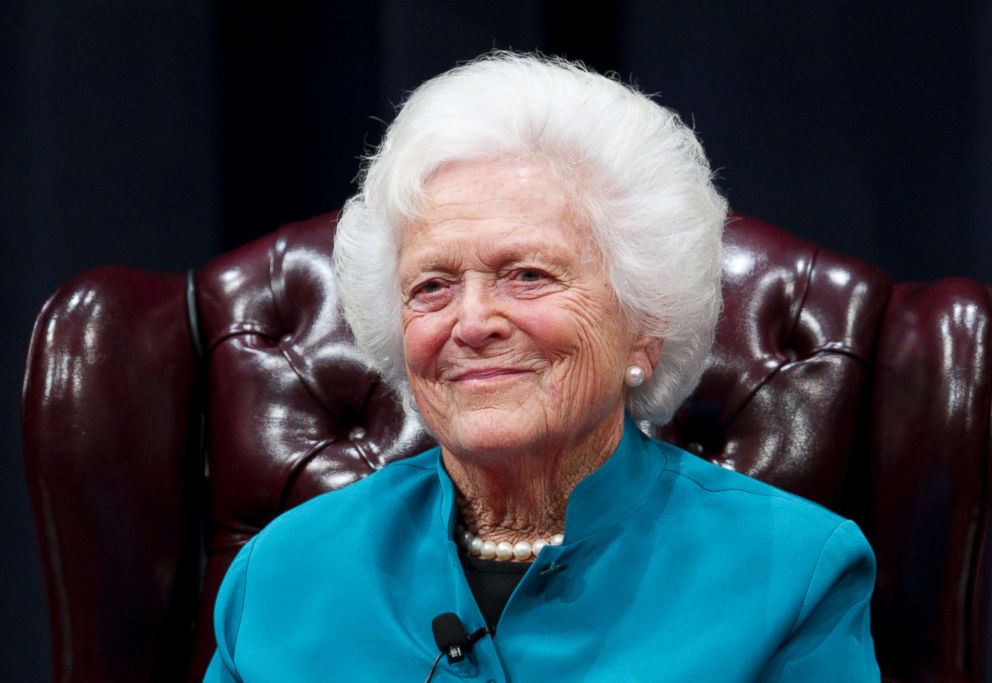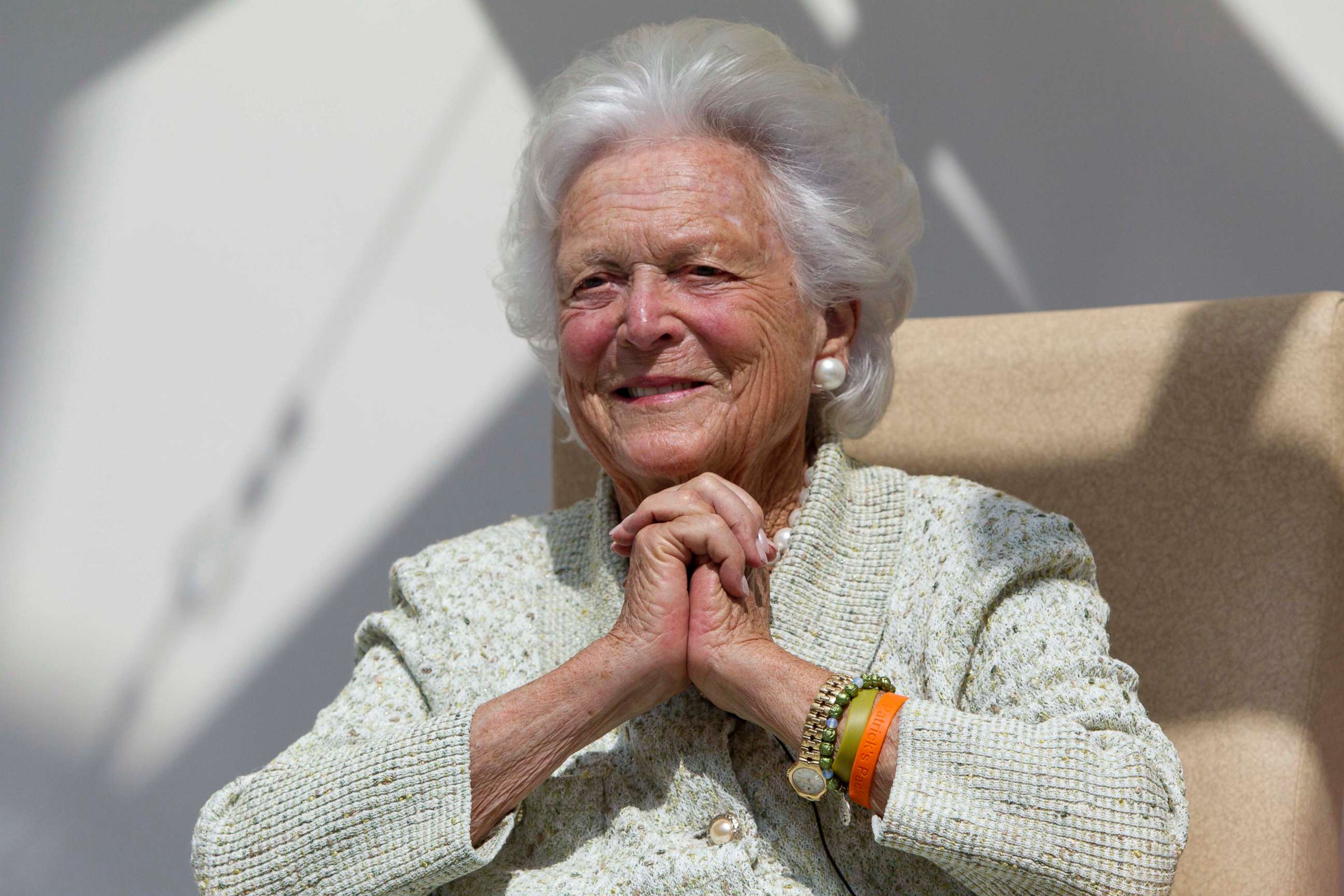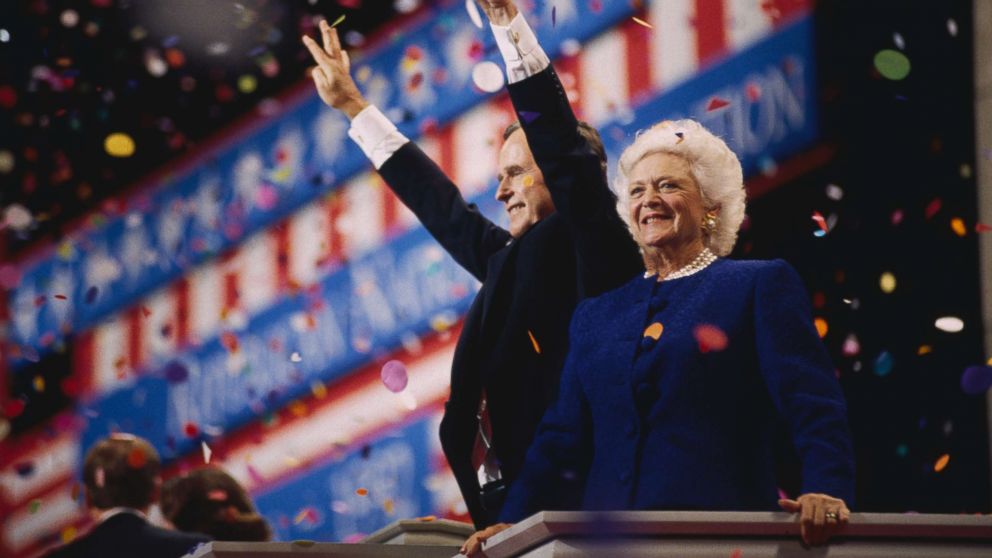COLUMN: Remembering Barbara Bush's adventurous life
It was hardly a logical destination for a 22-year-old well-born woman from Rye, New York. But when her husband declared that after graduating from Yale, he would decline a lucrative family pass to Wall Street to pursue a career in the Texas oil industry entailing their move to Odessa, Barbara Pierce Bush deadpanned, “I’ve always wanted to live in Odessa, Texas.”
Soon afterward, she, her husband, George, and their 2-year-old son, George W., were living in a cramped Odessa duplex next to a pair of mother-daughter prostitutes with whom they shared a Jack and Jill bathroom, often finding themselves locked out when their neighbors’ patrons forgot to unlatch their access door.
As Mrs. Bush told me, she would have “followed George Bush anywhere,” even to flat, dusty West Texas, which for two Brahmins may as well have been Neptune. And like her husband, she was looking for an adventurous life, one that got her out of the shadow of her successful father and moneyed background, one where she would be judged on her own.

An adventurous life she got. An equal partner in her 72-year marriage, she continued to follow her husband, who led her to her to other places just as improbable as Odessa. Among the two dozen moves they made during the balance of their lives were places as far-flung as the People’s Republic of China, where George H.W. Bush was stationed as U.S. envoy in the mid-1970s, and the White House, where, after two terms as Ronald Reagan’s vice president, he held the presidency for from 1989 to 1993.
Along the way, Mrs. Bush bore six children, one of whom -- George W. -- would follow his father into the presidency just eight years later, another improbable development in her extraordinary life. She was the only woman except for Abigail Adams who would be the wife to one U.S. president and the mother to another.
Following the imperious Nancy Reagan in the role of first lady, Mrs. Bush was decidedly more accessible, embodying the “kinder, gentler” ethos espoused by her husband. A lifetime volunteer, she embraced causes that were largely disregarded by the previous administration including AIDS and homelessness, while promoting literacy, a particular passion.
“Every single thing in this world would be better if more people could read, write and comprehend,” she explained.
Despite her rarified pedigree, Americans related to her down-to-earthness. When asked why she wore $90 imitation pearls, she replied self-deprecatingly that they covered up the wrinkles on her neck.

The pearls may have been the only fake aspect of Mrs. Bush, who was “authentic” long before it became a 21st-century buzzword. She knew exactly who she was. After 150 Wellesley students expressed “outrage” at Mrs. Bush’s selection as their 1990 commencement speaker due to the fact that she had dropped out of Smith College to marry her husband and dutifully played the traditional role of mother and political wife without forging her own path, the first lady took it in stride.
“I don’t disagree with what they’re looking at,” she said with characteristic grace. “I chose to live the life I’ve lived, and I think it’s been a fabulously exciting, interesting, involved life. In my day, they probably would have been considered different. In their day, I’m considered different. Vive la difference.”
Though compassionate and maternal, she was none to be trifled with. The woman her children nicknamed “the Enforcer” could be fierce, especially when it came to protecting her husband. After George H.W. Bush’s 1988 campaign manager, Lee Atwater, appeared on the cover of Esquire magazine in a pair of boxer shorts with his shorts around his ankles, if fell to first son George W. to “chew his ass out,” but pointed to a greater reckoning.
“You think this is bad?” he yelled. “Wait till Mother gets ahold of you!”
Her life was not without hardship. At just 28, she lost her 3-year-old daughter Robin to leukemia, irrevocably turning her hair its signature shade of white; she suffered through a fleeting and inexplicable bout of depression in middle age; and she and George H.W. Bush contended with the rejection of the American people after his re-election defeat in 1992. But she was blessed, and no one knew it more than her.
“I’m the luckiest woman in the world,” I heard her say more than once. Maybe. But we were awfully lucky to have her represent our country. Despite the many advantages she had throughout her life, she was humble, never felt entitled and was always conscious of giving-back qualities that she and her husband embodied and instilled in their family’s next generations. Her adventurous 92 years may have ended Tuesday, but the mark she made in this world will long endure.
Mark K. Updegrove is ABC News' presidential historian and the author of "The Last Republicans: Inside the Extraordinary Relationship Between George H.W. Bush and George W. Bush."




